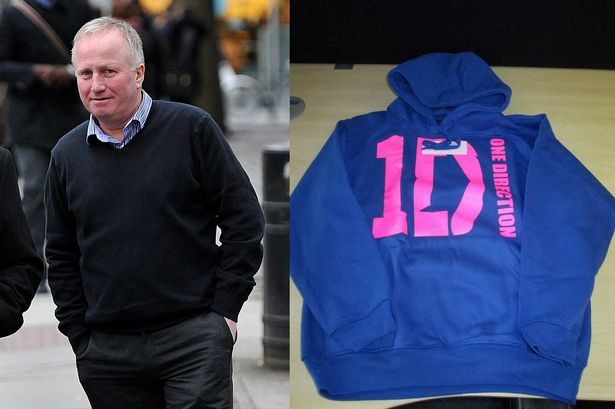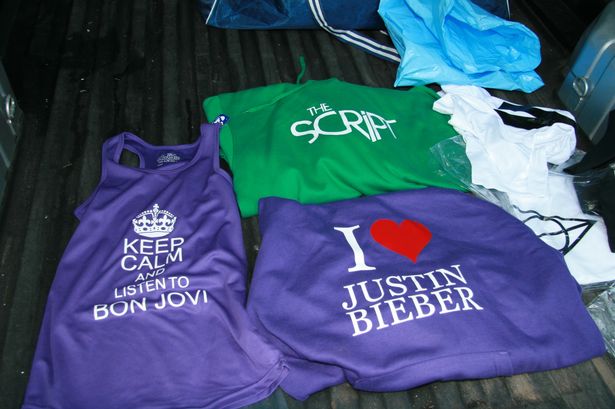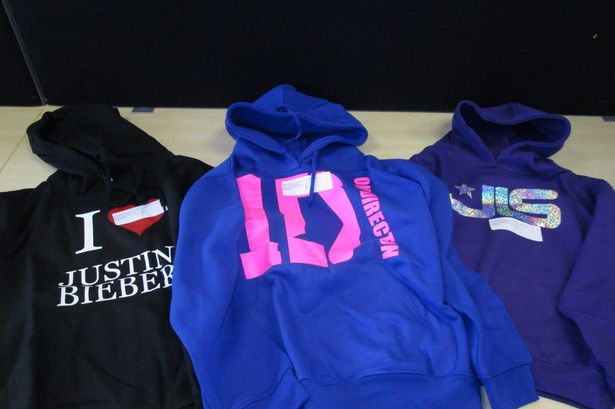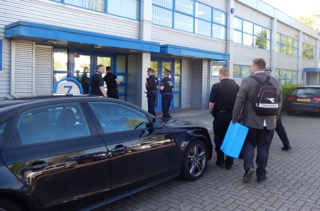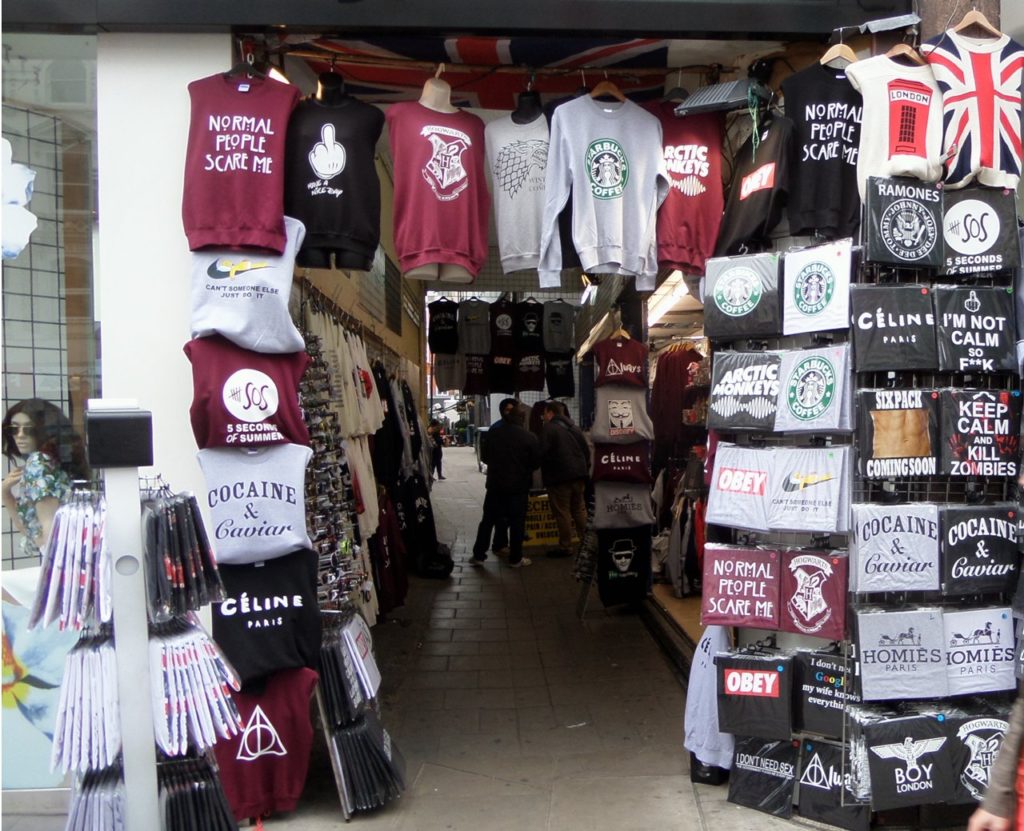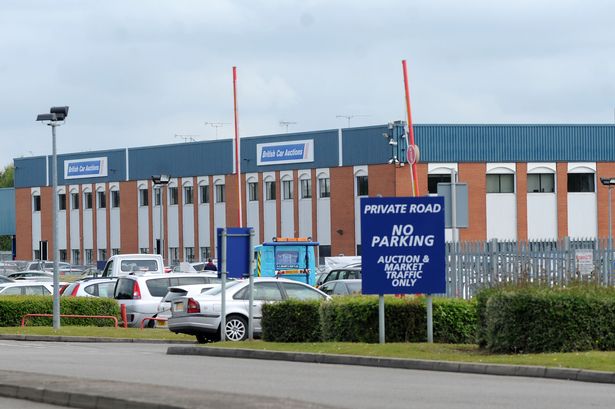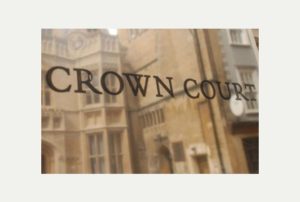Surelock, on behalf of its clients, continues to assist the Police Intellectual Property Crime Unit (PIPCU) to remove counterfeit cosmetic products from sale
- Dangerous levels of lead, mercury and cyanide found in the fake make-up
- Bogus MAC, Benefit and Urban Decay products sold via eBay and Amazon
- Buyers risk severe allergic reactions as well as long-term health problems
- Officers suspended 5,500 sites for selling fake goods in past 18 months
Fake make-up loaded with toxic chemicals is flooding into Britain, police warned last night.
Counterfeit versions of leading brands such as MAC, Benefit and Urban Decay have been found with dangerous levels of lead, mercury and even cyanide.
Criminal gangs are using squalid underground laboratories to make huge quantities of the bogus cosmetics, which are then sold through websites including eBay and Amazon.
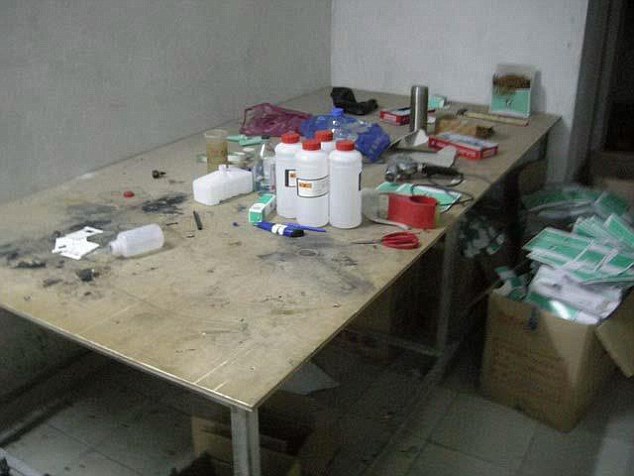
Buyers risk suffering severe allergic reactions as well as long-term health problems. Over the past 18 months investigators have suspended more than 5,500 websites for selling fake luxury goods.
In one shipping container police found more than 4,700 counterfeit versions of MAC products including foundation, bronzer, lip gloss and eye shadow.
Senior detectives at City of London Police are so alarmed they have issued a national alert.
One victim was left fearing for her eyesight when she bought cosmetics from an online company she later discovered was based in China.
Within minutes of applying the fake Urban Decay eye shadow Katie Brown from Cheshire found her eyelids had swollen and her eyesight became so blurry she feared she was going blind.
‘I realised it was fake as soon as I opened it,’ she said. ‘The package looked slightly different and the mirror was a bit wonky, like you might see in a fairground.’
Customers are buying the fake products because they cost a fraction of the genuine article. But trading standards officers have discovered they contain high levels of lead, arsenic, mercury, copper and cadmium.
The heavy metals have been linked to health problems ranging from allergic reactions and skin sensitivity to nerve disorders and even death.
Excessive levels of lead can cause high blood pressure, fertility problems, memory and concentration problems and increased risk of harm to the foetus during pregnancy.
The fraudsters are also producing sun cream, which looks exactly like the real thing but, shockingly, offers no protection against harmful UV rays.
Detective Superintendent Maria Woodall, of the Police Intellectual Property Crime Unit, said: ‘Criminals are exploiting every opportunity to fool customers into buying counterfeits in order for them to make some quick cash – putting people’s health, homes and lives at risk.
‘Beauty products are meant to enhance your features, however, the fakes can in fact do quite the opposite.
‘Not only could these products have serious implications for your health and wellbeing but by simply going online and buying from a rogue site or dealer, your personal and financial information is at risk.’
Made in China and Eastern Europe, the fake cosmetics are shipped into the UK in plain containers and packaged by illegal immigrants in sweatshops in the North East. They are typically sold online, on market stalls or in temporary high street shops selling household items at knock-down prices.
As well as top cosmetic brands, other popular counterfeit items are Christian Dior face cream, Estee Lauder night cream and Dove soap and shower gel.
Fake versions of cosmetics by MAC and Benefit have been found to contain up to 19 times the legal level of lead.

Pregnant women and their unborn babies are particularly vulnerable to some of the dangerous chemicals, which include cancer-causing compounds. Dermatologists have reported a rise in the number of women with skin conditions triggered by use of the counterfeit cosmetics.
Police, who have confiscated products worth £3.5million over the past 18 months, advise customers to check the spelling and grammar on websites and to identify where a seller is based.
They said legitimate luxury brands are very rarely sold at heavily discounted prices, meaning ‘great deals’ are probably too good to be true. Officers also highlighted the dangers of buying other counterfeit goods, including electrical items such as hair curlers and straighteners.
The fake cosmetics trade costs manufacturers more than £300million a year.
Chris Greenwood, Crime Correspondent for the Daily Mail
For the full article: http://www.dailymail.co.uk/news/article-3085665/Warning-fake-make-tainted-cyanide-dangerous-chemicals-Counterfeit-versions-leading-brands-cooked-criminals-squalid-underground-labs.html#ixzz3aTOZpH11

